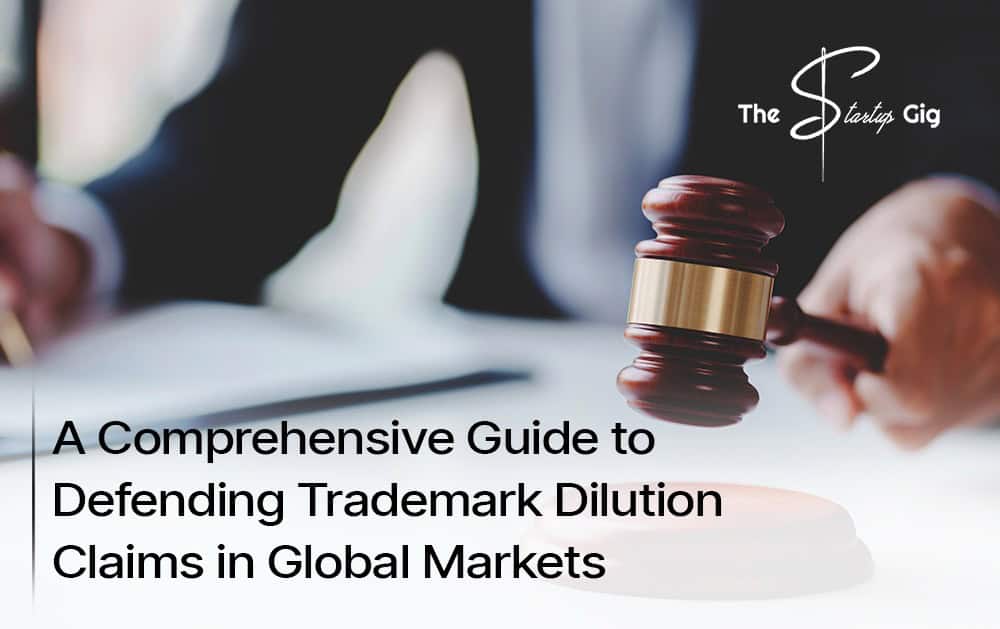Trademarks play a vital role in differentiating goods and services, as well as in cultivating consumer trust and loyalty to brands. Thus, ensuring trademark protection is crucial, especially in e-commerce, where consumers often rely on renowned brands and make purchases based on their reputation rather than the actual quality of the products or services.
Understanding Trademark Dilution
When a well-known trademark owner alleges that another party’s use of a mark that is close to or identical to their own dilutes their mark’s uniqueness or harms their reputation, this is known as trademark dilution. With increasing instances of trademark dilution, it is essential for trademark owners to safeguard their well-known brands to maintain their integrity and avoid public confusion.
The Concept of Trademark Dilution
The unapproved use of a well-known mark by a third party that diminishes its repute or distinctiveness is known as trademark dilution. Although the term “dilution” is not specifically mentioned in the Trade Marks Act of 1999, Section 29(4) implies that a mark may be diluted if it is used for unrelated goods or services that are identical or deceptively similar to a registered well-known trademark.
Unlike trademark infringement, which typically requires the goods or services to be related, trademark dilution can occur even when they are not. Trademark dilution primarily falls into two categories: blurring and tarnishment. In the European Union, a third category known as free-riding is also recognized.
Blurring and Tarnishment
Dilution by Blurring:
This happens when the unapproved use of a well-known trademark for unrelated items weakens its distinctiveness. For example, if someone were to use “SAMSUNG” (a brand synonymous with electronics) for cosmetics, it could blur the public’s association with the original brand.
Dilution by Tarnishment:
This type of dilution happens when a third party uses a well-known mark in an inappropriate or offensive context, harming the original brand’s image. For instance, using a prestigious mark in a negative light could damage the reputation of the brand.
Free-Riding:
In the EU, free-riding occurs when a third party uses a well-known mark for unrelated goods, implying a false association with the brand. For example, if someone used “GUCCI” as a name for a restaurant, it would unfairly benefit from the goodwill of the GUCCI brand.
Trademark Dilution in India
While the term “trademark dilution” is not explicitly defined in the Trade Marks Act of 1999, Section 29(4) addresses the issue by protecting well-known trademarks from unauthorized use. This section outlines conditions that classify actions as dilution, such as using a mark identical or similar to a registered trademark for unrelated goods, which harms the reputation of the original brand.
In the case of ITC v. Philip Morris Products SA and Others, a well-known mark with a reputation in India experiences trademark dilution when a third party uses a similar mark without permission, weakening the original mark’s distinctiveness
Similarly, in Ford Motor Co. v. C.R Borman, the Delhi High Court protected the “Ford” mark from passing off, highlighting the importance of a trademark’s reputation in India. This indicates that trademark dilution can harm the uniqueness and goodwill of famous brands, even when there’s no confusion among consumers.
Global Perspective on Trademark Dilution
Trademark dilution laws vary across jurisdictions. Countries like India, the United States, and those in the European Union recognize some form of trademark dilution, while countries such as Canada and Australia do not have specific dilution laws but offer similar protections under other legal frameworks.
Comparing Trademark Dilution Laws: India vs. USA
- Famous Marks vs. Well-Known Marks: In the USA, trademark dilution protection is limited to famous marks recognized by the general public. In contrast, Indian law does not differentiate between registered and well-known marks, allowing courts to apply the principles of well-known marks to protect brands.
- Standard of Damage: US law requires proof of actual dilution, whereas Indian law recognizes trademark dilution based on potential consumer confusion without necessitating evidence of actual damage.
- Defenses and Fair Use: While US trademark laws include provisions for fair use, such as parody and comparative advertising, India’s Trade Marks Act lacks such explicit defenses. Indian courts often interpret trademark dilution cases using broader legal principles due to this absence.
Defenses Against Trademark Dilution Claims
- Challenge the “Well-Known” Status: The distinction between a well-known mark and a merely recognized mark is not clearly defined under Indian law, giving defendants grounds to argue against the claimant’s assertion.
- Proving Distinctiveness: Defendants can establish their trademark’s distinctiveness through market recognition, duration of use, and exclusivity, which may reduce the likelihood of confusion or dilution.
- Consumer Perception Evidence: Conducting surveys to show that consumers do not associate their trademark with the plaintiff’s well-known mark can further demonstrate that no confusion or dilution exists.
- Claim of Prior Use: If a party can prove that their mark was in use before the well-known mark, they may invoke prior use rights. Indian law acknowledges common law rights that protect existing marks.
Additionally, certain uses of identical or similar marks may not constitute trademark dilution if they fall under descriptive or nominative fair use. This includes scenarios involving criticism, news reporting, education, and entertainment.
Conclusion
Trademark dilution poses a significant threat to businesses, just like trademark infringement. While awareness of trademark dilution rights may be lower than that of infringement rights, enforcing these rights is crucial to preserving brand distinctiveness. By preventing unauthorized use of a registered mark that may blur or tarnish a brand’s identity, trademark dilution laws play a vital role in maintaining a brand’s integrity, value, and reputation. Understanding national and international legal frameworks and available defenses can empower trademark owners to protect their well-known marks effectively.
At The Startup Gig, we understand how crucial it is for startups to protect their intellectual property. Our expert team is here to help you with trademark registration for startups, ensuring that your brand is safeguarded from dilution and infringement. With comprehensive services tailored to the unique needs of startups, we help you maintain your brand’s distinctiveness in a competitive global market. Let us handle your trademark registration and empower your business for future success.
Blog Tags: Trademark protection, logo trademark, trademark law, trademark registration, register a trademark, brand registration, international trademark, defending trademark dilution claims, trademark dilution, trademark blurring, trademark tarnishment




